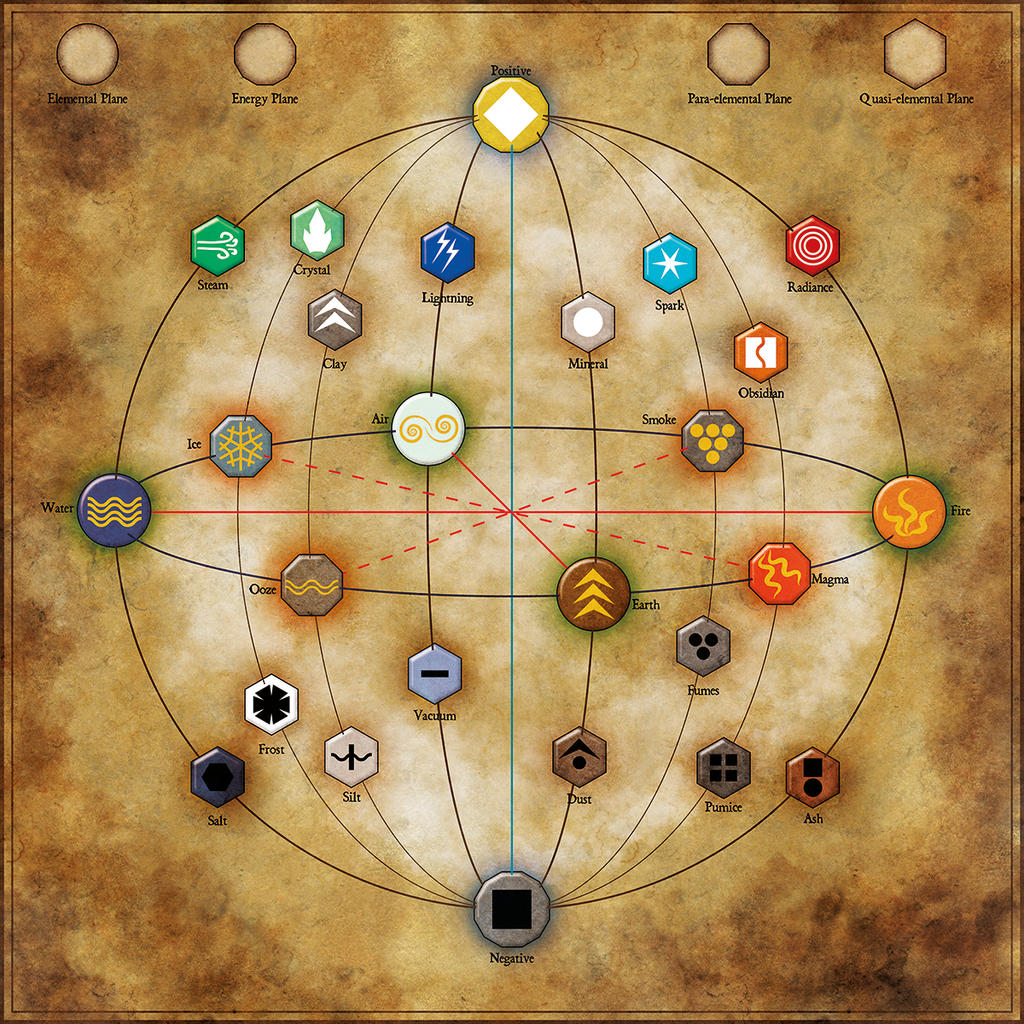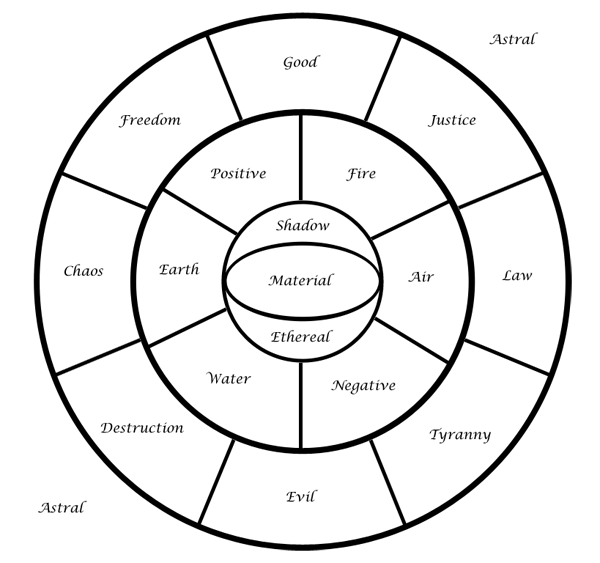I haven't posted a planar post in a while so I thought I should get on that.
The "wheel" or "great wheel" cosmology is the default cosmology for the D&D status quo. Originally presented in the
Manual of the Planes, it has since received a bunch of different variations. Years ago I tried my hand at reinventing the wheel (pun intended), but I don't recall ever giving a comparison of this cosmology with its several variations. So here we go!
Canonical
Below are the two generally accepted versions of the Great Wheel. The Great Wheel has generally remained the same across the various editions in which it appeared, with only minor changes. The most obvious between 2e and 5e would be the condensing of the lesser elemental planes into the elemental chaos and the addition of the shadowfell and feywild to the inner planes.
The Great Wheel is also called the
Planescape cosmology. The prime material plane also has
crystal spheres, but those are another can of worms also called the
Spelljammer cosmology. When the two are used in tandem, the fandom jargon for the setting is "Planejammer."
Apocrypha
Plenty of GMs have adopted the Great Wheel wholesale with little or no change, such as Anethemalon.
The
Planescape fans have since added
tons of other planes to the wheel. These additions include
extra elemental planes,
extra outer planes, and
extra transitive planes.
Other wheels
Since the Great Wheel isn't OGL, third-party publishers have resorted to creating their own wheels if necessary. For example, both Mongoose's
Classic Play: The Book of the Planes and Paizo's
Pathfinder present simplified wheels in which the outer planes have been reduced to nine (one for each alignment). Mongoose simply called this the "wheel" cosmology; Paizo called theirs the "
Great Beyond."
Personally, I prefer simplified cosmologies like the omniverse or world axis because I think all the extra paraplanes and quasiplanes get silly and redundant after a while. But that's for other posts.







No comments:
Post a Comment